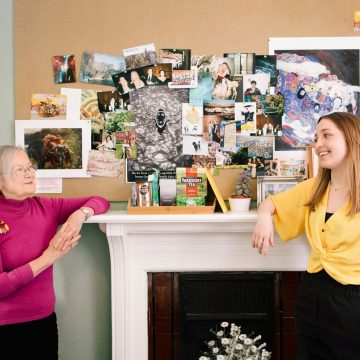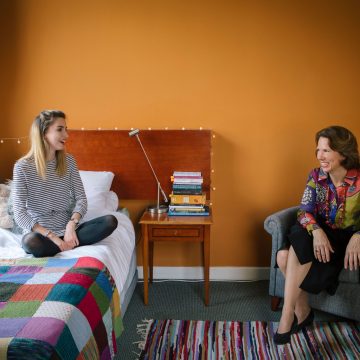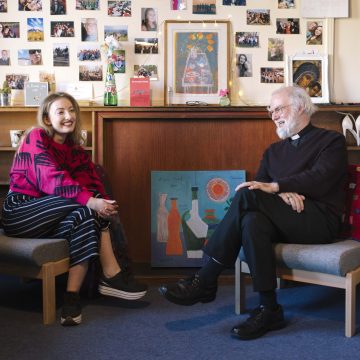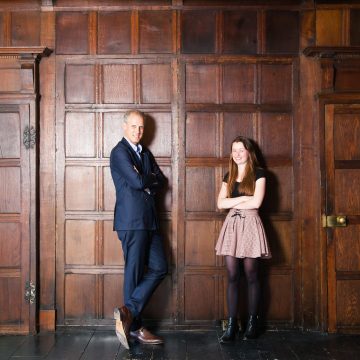Professor Dame Ann Dowling: Room F35, Girton
The first female President of the Royal Academy of Engineering discusses space-time, infinity and corridors with third-year mathematician Andrew Pritchard
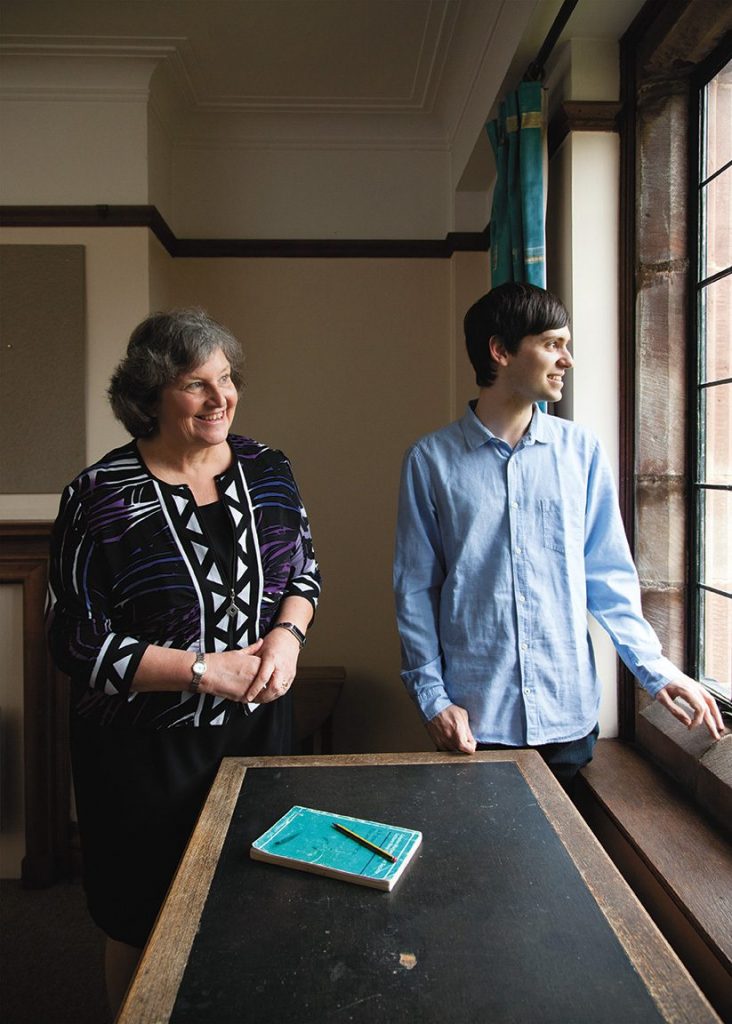
Professor Dame Ann Dowling and Andrew Pritchard are discussing a problem of infinity and space-time that has long baffled their contemporaries. Where do Girton’s corridors begin, where do they end, and have they shrunk?
“I always remember Girton having these infinitely long corridors,” Dowling says. “But it’s funny – they don’t seem so long now. And they used to have a very strong smell of polish, which I’m not detecting.” Pritchard agrees. “When I came up for my interview, it just seemed like a complete maze. I’ve been here for three years and I think I’ve walked them all now…”
Dowling is the first female President of the Royal Academy of Engineering and was the first female Professor in the Department of Engineering and spent her third year in Room F35, which sits right in the middle of one of those endless corridors, “about as far away as you can get from the bathroom,” points out Pritchard.
Pritchard doesn’t feel the need to decorate his space, he says: his shelves contain only a few books (including GCHQ’s Puzzle Book), a couple of tins of shortbread and a Go board.
Dowling, however, did not travel light. “I brought so many clothes!” she remembers. “Piles and piles of clothes. I remember standing in the tiny room I had in the first year and wondering where on Earth I was going to put them. And I had a moped which I’d ridden since I was 16, which was very useful for getting into town.”
“Us girls drove the bed, as we were lighter,” she says. “And we had four or so men pushing. We didn’t know that they had disconnected the handbrake!”
In the early 1970s, town was the place to be. “I don’t remember Girton having a bar,” Dowling says. “There were three women-only colleges and the rest were all men-only, and we spent a lot of time hanging out at the men’s colleges. My boyfriend at the time, who later became my husband, was at Churchill, so I spent quite a lot of time there. Or coffee at a greasy spoon. We did a lot of sitting around and talking.”
Students these days, she says, seem to organise their leisure time far more than she ever did. “And they have all the technology, of course. We used to have to queue up for the payphone. My mother liked to hear from me once a week.” Then there were the ‘Girton songs’ sung on special occasions (which Dowling insists she cannot remember: luckily, Pritchard points out, Wikipedia has recorded their words for posterity) and the Bed Race down the A10 from Cambridge to London.
“Us girls drove the bed, as we were lighter,” she says. “And we had four or so men pushing. We didn’t know that they had disconnected the handbrake! Every now and then you’d see a bed on the verge which hadn’t quite made it.”
Pritchard’s spare time also remains determinedly analogue. “Parties do go on, in rooms and bars, but not this room!” he says. “I tend to stay in college. We play pool or cards, and twice a week the board game society meet up. The room is so quiet, it’s great for working.”
Their time at Girton, both say, helped them find their paths. Pritchard has discovered that he’s more interested in pure mathematics. “Proofs, and logic, and that kind of thing,” whereas Dowling is the opposite. “I did find that I was more interested in the practical application of mathematics,” she says, adding with considerable understatement, “and things came out OK. Although I did adhere to Cambridge mathematician GH Hardy’s famous maxim that no mathematician could work for more than four hours a day. That used to be my mantra!”
Professor Dame Ann Dowling OM DBE FRS FREng is the first female President of the Royal Academy of Engineering. She led the Engineering Department at Cambridge until 2014.
Andrew Pritchard is a third-year aiming for research or teaching.

